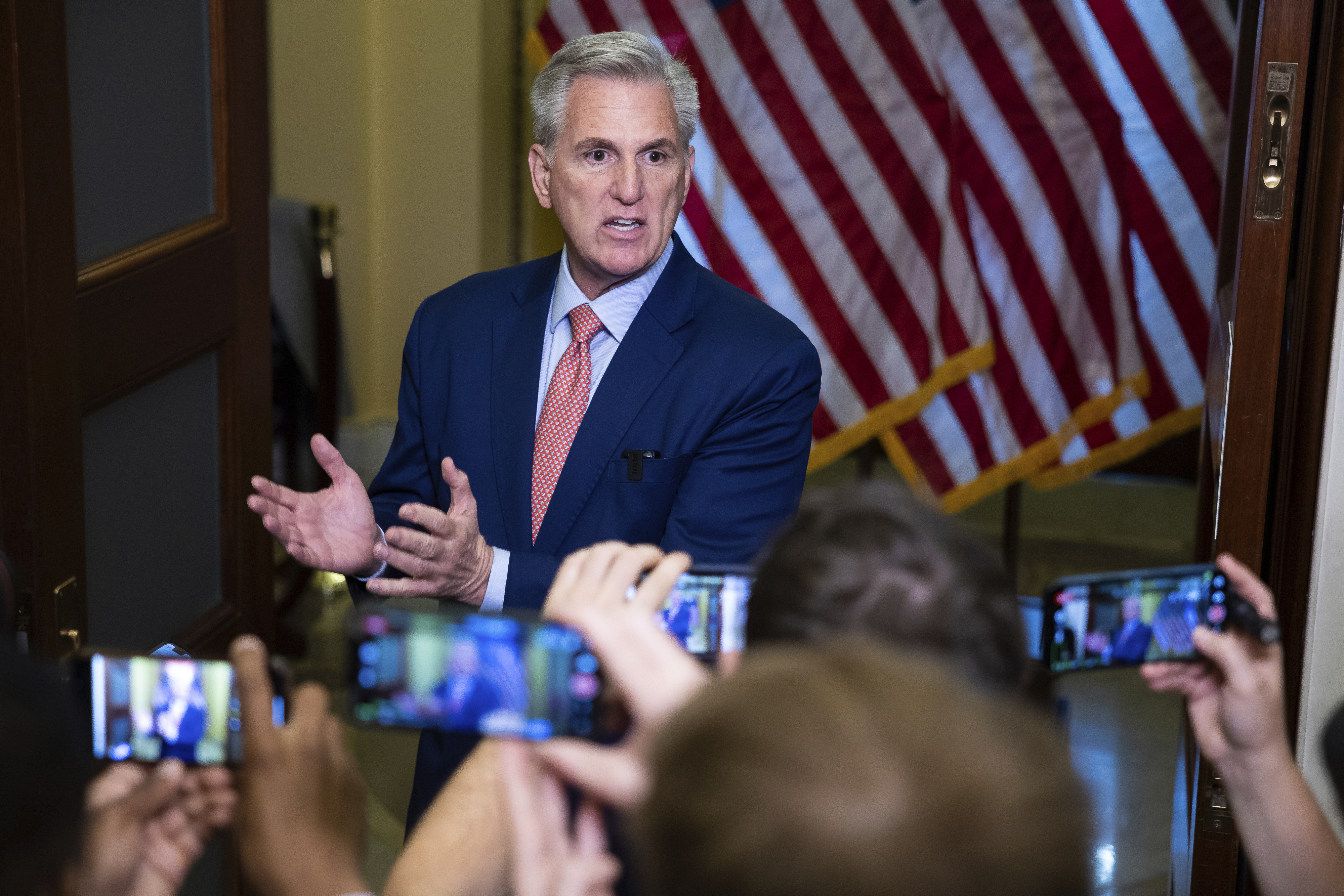If Speaker Kevin McCarthy has any hope of avoiding a shutdown this fall, he’ll probably need help from Democrats.
But he’s not guaranteed to get it — at least not yet.
By Sept. 30, House GOP leaders have to pass a major bipartisan spending deal or a short-term patch to keep the government open, with both options requiring cooperation from McCarthy’s hardliners. But those recalcitrant conservatives are signaling they’ll be loath to support either solution, almost certainly putting the onus on House Minority Leader Hakeem Jeffries and his Democrats to help avert disaster. “At some point we’ll have to deal with the reality that America is a two-party system. If we can’t do it on our own, there may come a point in time when you want to have to deal with Democrats,” said Rep. Dave Joyce (R-Ohio), who leads the centrist Republican Governance Group and has been part of GOP spending talks.
What’s more unusual this time, though, is that Democrats will probably need to do more than simply chip in to pass a bipartisan deal or a deadline extension. They’ll have to vote to help Republicans move any agreement to the House floor.
That scenario carries plenty of potential pitfalls for a speaker who’s already on thin ice with his hard-right wing. McCarthy will need to survive the wrath of his conservatives if he calls a vote where large numbers of Democrats help the GOP agree to start debate on a spending plan that those hardliners oppose.
His right-flank rebels’ threats to weaponize the House’s rule for debate — a procedural step that’s required in order to vote on any bill — could extend to more than just government spending. Democrats may have to step in to end a conservative blockade of several other high-stakes bills this fall, from a new farm bill to a foreign surveillance measure to Ukraine aid.
On each of those items, senior Republicans widely acknowledge the difficulty of corralling their hard-right wing. Some of them also worry that Democrats won’t be in any mood to help them out of a bind on rules for debate, even if it means a shutdown.
“If you’re the Democrats, what motivation do you have to want to help Republicans, who are now governing, achieve their goals and objectives?” a downbeat Rep. Steve Womack (R-Ark.) said.
“Unless they have this desire to save the country from itself, I don’t see them coming to the rescue on the rule, I don’t see them coming to the rescue on the votes,” Womack added.
So… Why is the article not that some Republicans agree to help democrats pass a spending bill?
If you discount the crazies on the GOP side, dems have more votes. And, you know, a desire to see the government functioning, oh and to legislate
Because the chamber is controlled by the GOP and the Speaker sets all the priorities
So can a priority not be reaching across the aisle to pass a reasonable budget?
It’s an internal rule they don’t let some thing get a vote unless a majority of republicans in the House are in favor. They won’t force a wedge issue on their own caucus unless they really have to. Just goes to show how unaligned the GOP is with the needs of the country.
Oh look Kevin. It’s your chickens coming home to roost.
What’s more unusual this time, though, is that Democrats will probably need to do more than simply chip in to pass a bipartisan deal or a deadline extension. They’ll have to vote to help Republicans move any agreement to the House floor.
If this happens, it will have come full circle back to the way it should be and not allowing a small group to hold the government hostage…
deleted by creator



